Buffy: The Vampire Slayer was at its absolute best when its metaphorical demons were on point. The season-long baddies had their ups and downs (yay Mayor and Angelus! boo Adam and The Nerds), but nothing could beat a really good monster of the week to highlight whatever our favorite Slayer and her friends were going through during that episode. Because in the end, the monster didn’t matter so much as what it represented about their lives. (Except that one praying mantis teacher who tried to seduce Xander. We’ll take that one at absolute face value and not think about it anymore, at all, ever.)
With that in mind, here are my top ten (in no particular order) monsters of the week:
“Normal Again” (S6 E17)
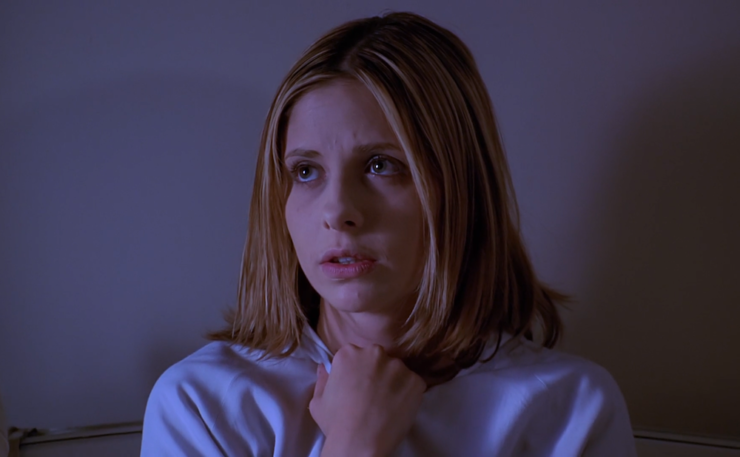
I never remember much about this demon, other than that he had stabby needle things, because the demon didn’t matter. What did was that this attack causes a depressed and traumatized Buffy to wake up in another reality—one in which her mother is still alive, and her parents are still together, and she’s just a girl. A girl so lost in her own head that she’s institutionalized, but not the chosen one. Not a Slayer. Just Buffy. This situation—as bleak as it is—is still tempting compared to her post-death life, and for a few minutes she considers doing what is necessary to keep it: letting her friends and her sister die, thereby killing her connections to the life in which she’s Buffy, the Vampire Slayer. In the end, she chooses her found family over a reality in which she didn’t have to bear the weight of the world, and begins the difficult work of clawing upward from deep depression.
“Hush” (S4 E10)
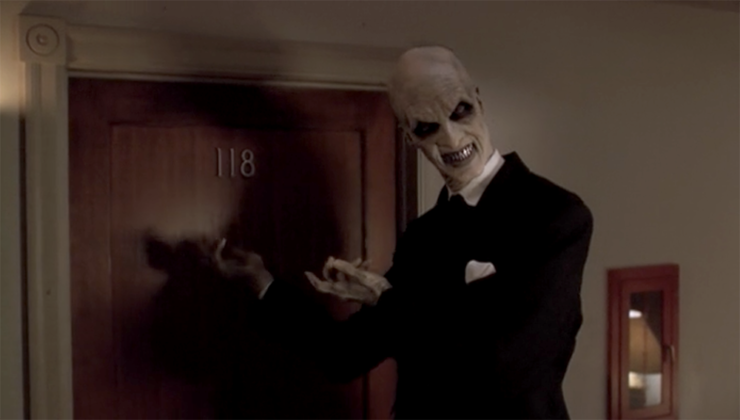
Doug Jones does more acting with his hands than most people do with their entire bodies, and he’s put to exquisite good use in this landmark episode. We can talk all day about how losing their voices forces the Scoobies to finally communicate—including Buffy and Riley, who couldn’t take that final step to kissing without their tongues talking getting in the way—but there’s a reason The Gentlemen remain some of the most terrifying monsters ever to appear on Buffy. After robbing you of your voice, pale men in nice suits smile as they kill you. Yup.
“Innocence” (S2 E14)
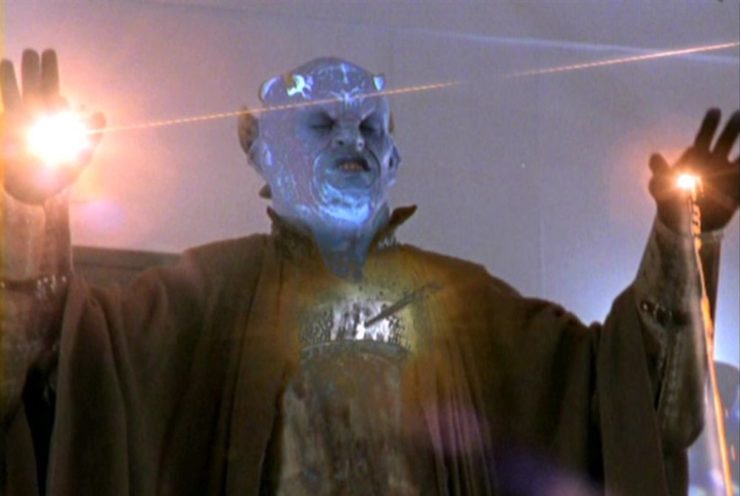
In the one-two punch of Surprise and Innocence, Buffy has to deal with sleeping with her true love only to find he’s now a soulless demon intent on hurting her. (No symbolism there at all…) Still reeling, Buffy faces The Judge, a seemingly invincible foe. But Buffy knows just because it took an army to destroy something in the past doesn’t mean she can’t do it herself with a little luck and a rocket launcher. This glorious—and funny—moment leads to a Buffy versus Angelus fight that lets us know she’ll be okay, one way or another, eventually.
“Becoming” (S2 E21&22)
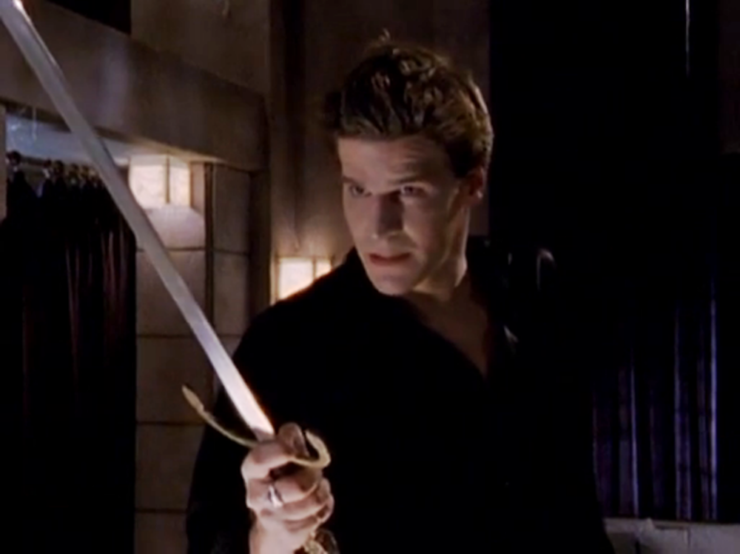
And speaking of Angelus, has any fight been more devastating than Buffy triumphing over Angelus, only to find herself face to face with Angel—and forced to sacrifice him to save the world? But as I’ve gotten older, this isn’t the moment that kills me so much as one that comes before it. Buffy’s getting ready to go. She knows that, whatever happens, it’s an ending. For her, or for the world. Her mother tries to stop her, but Buffy confronts her, finally forcing Joyce to admit that Buffy is not normal, and is not okay, and how could Joyce have gone so long without noticing? As a teen hiding depression (poorly) from my parents, this moment was huge for me to see. Now that I’m an adult and a mother, it hurts in a way I hope I never stop feeling as a reminder to always, always see my children.
“Gingerbread” (S3 E11)
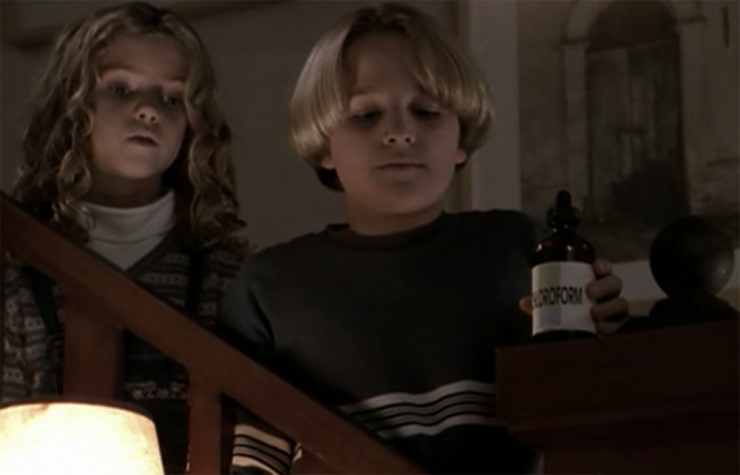
Speaking of motherhood, in this episode two creepy dead children influence the parents of Sunnydale to join together with Buffy’s mom to form MOO—Mothers Opposed to the Occult. Though Joyce and Willow’s mom blithely ignored their daughters’ growing powers and problems for two whole seasons, suddenly they’re willing to acknowledge everything bad in Sunnydale…only to tie the girls up at the stake, hating them for what gives them strength to fight back against the darkness. Teenage girls being punished for being able to do things the adults around them can’t? Always and forever true. (Also, Willow’s mom conveniently forgetting everything except that she’s dating a boy in a band? TRUE AS WELL.)
“Doppelgangland” (S3 E16)
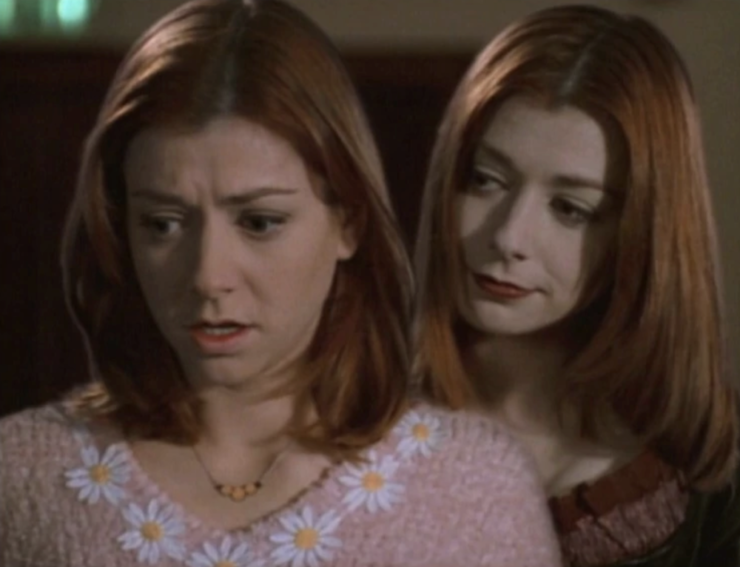
Aside from being one of the funniest episodes ever, plus giving us the iconic “Bored now,” line that we all wish we could employ daily, Vampire Willow did what the best episodes did: lay a foundation for what was to come. “And I think I’m kind of gay,” is delivered as a throwaway joke, but leads to some of the most groundbreaking representation on network television at the time. You were and you are, Willow, and we’re so glad.
“Living Conditions” (S4 E2)
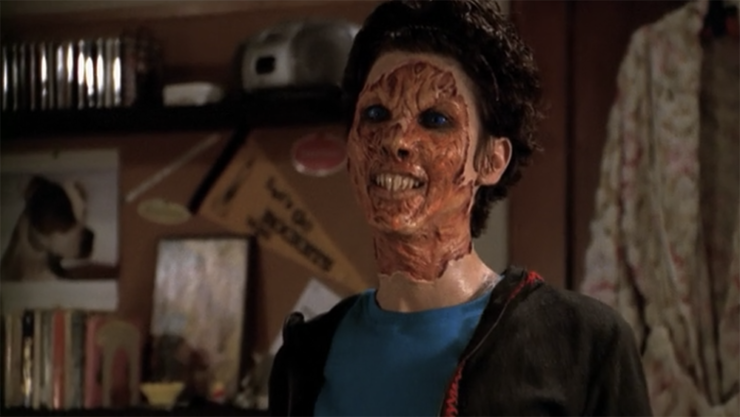
The transition from high school to college is tough. As in life, so in television. Buffy was no exception to these growing pains, but this second episode of the college year is perfect. Kathy, Buffy’s roommate who never heard a Cher song she didn’t want to play on repeat forever (I’m looking at you, my own freshman roommate who ruined Michelle Branch for me—devastating for a fan of Willow and Tara!), is so annoying it’s demonic. Literally, in this case, but regardless, Kathy is one of the most relatable demonic foes ever. If only the rest of us were Slayers who could have vanquished our roommates by sending them back to their own dimensions.
“Buffy Vs. Dracula” (S5 E1)
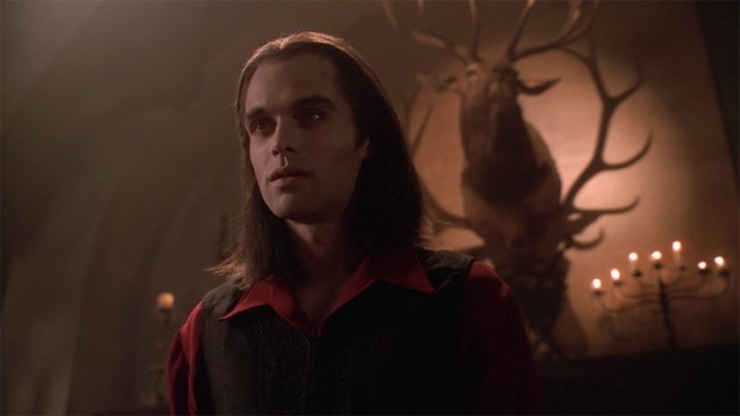
Not only did this season five opener deliver a gloriously self-contained episode featuring none other than Dracula, but it used Dracula to expose the growing cracks—between Willow and Tara with magic use, Buffy and Riley with Riley’s Rileyness, Buffy and Giles with her need for a Watcher, and even between Buffy and her self-image. It was self-aware in the best possible way, giving us a delightfully tropey Dracula, but also setting the tone and conflict for the rest of the season. A perfect premiere with the best ending twist ever. “Mom!”
“Selfless” (S7 E5)
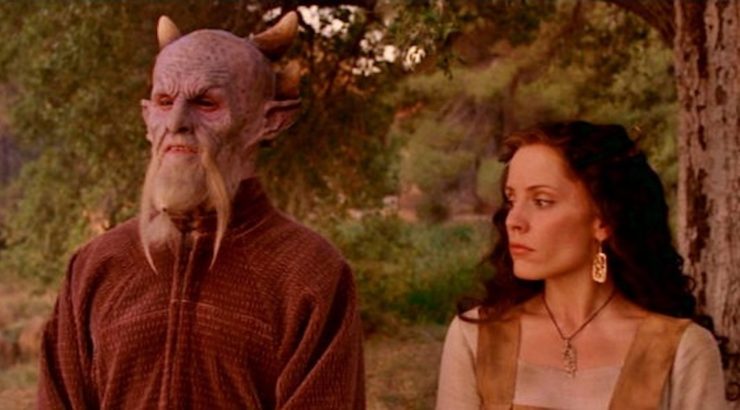
In a series filled with amazing side characters, Anya might be my favorite. And this episode is an incredible deep-dive into who and why she is. The demon featured? Anya herself, as she grapples with the metaphorical demon of being forced to create your identity around the men in your life. Also, there’s that big spider thingie and D’Hoffryn and the devastating cost for Anya doing the right thing. But mostly the demon of the patriarchy and what it does to women. (An essay for another day is how Anya’s chosen vengeance demon specialty—avenging women wronged by men—always hurts the women as much or more than it does the men. Oh, Anya.)
“The Body” (S5 E16)
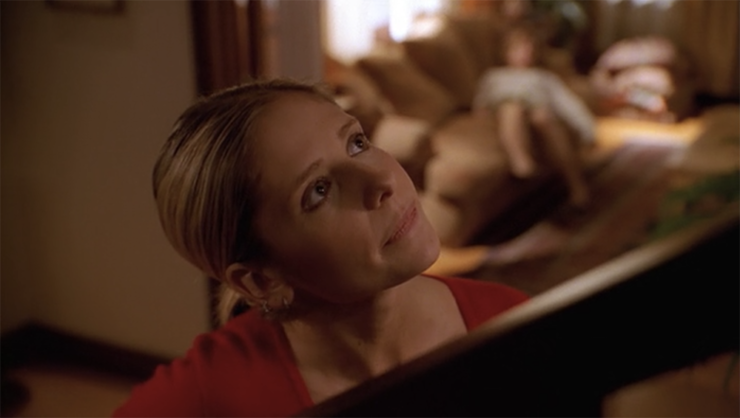
Though there’s an almost perfunctory vampire attack in this stunning episode, the real demon is death. The finality of it. The banality of it. The absolute empty stretch of it, echoed by this episode’s brilliant lack of music. It is a travesty that Sarah Michelle Gellar wasn’t nominated for her performance in what remains one of the most harrowing episodes of television ever. I dare you to think of her saying, “Mom? Mom? Mommy?” without recoiling from the emotional blow.
And, like a monster, I’ll leave you with that image. Wishing you all the best with your demons, both personal and metaphorical, and if you need more Slayage in your life (who doesn’t?), you can fight new threats with Nina the Watcher-turned-Vampire Slayer in Slayer and Chosen.










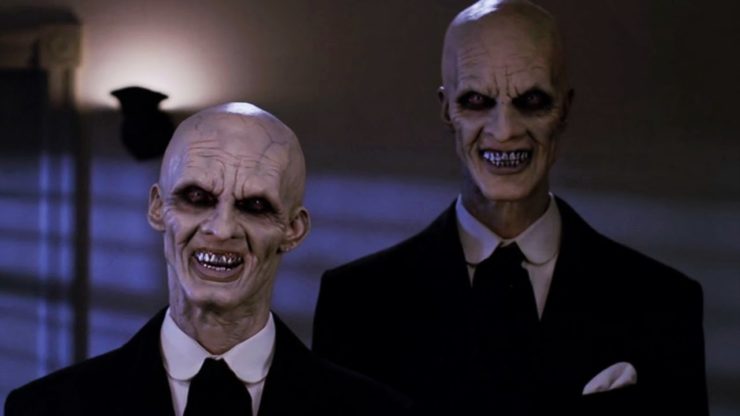
You are a monster. That last image. Ugh. Also – I always forget this one is coming since I never quite remember which episode is before it. And then…that ending. Right, need to stop talking about it before my eyes get wet.
Hush is an all-time classic, of course. Gingerbread is probably one of my most-hated episodes, but that’s just because I hate seeing Willow’s mom and Joyce in this one…do what they do. Hate it so much. In honour of American Thanksgiving, would love to throw Pangs up there as well (for one of my all-time fav episodes, and relatively self-contained, yeah?).
What about the demon that makes everyone sing their true feelings?
I totally forgot that Doug Jones was one of the Gentlemen! Geez!
—Keith R.A. DeCandido
@1 “We’re not allowed to move the body.” Cut.
I was afraid that episode would be in the list.
@@.-@ – seriously? The other moment that just grabs my heart and wrings. If I’m not already a mess, that’s the line that does me in.
Mmm, evil/vampire Willow. More please!
Aw, no mention of the Halloween episode with Anya dressed as a bunny, and the scary demon with a size problem?
@5 Misery loves company.
Of the ones not mentioned yet, Gnarl.
@6 – Don’t taunt the fear demon!
Man this means it’s time for my Buffy marathon. So excited for CHOSEN <3
I only saw ‘The Body’ for the first time back in April, and I don’t think I’ve ever watched anything on television that left me as stunned and gutted as that episode. It really was one of the most impressive hours of television ever put together. If it didn’t win an Emmy, I don’t know what Emmys are for. Brilliant and brutally truthful (well, except for the obligatory little vampire fight at the very end).
I wouldn’t except that obligatory vampire at the end from the brilliance and “brutal truth” of this episode. It’s a great victory-that-isn’t-a-victory moment. The hero, as heroes do, “wins” but it is of course empty of all meaning because the real monster isn’t the vampire but life/death. And to emphasize that it’s the most brutal, truthful fight in the whole show (in memory at least). No pretty choreography. No acrobatics. No dance moves. No witty banter portion. No nice precise stake in the heart. No cute poof. Naked (literally) reality, stripped of all the artificial aesthetics used to hide the truth at the core. A perfect cap to a brilliant episode.
You think watching “The Body” was hard on its own. Try watching it air the week after your grandfather unexpectedly dies.
What a great list. My absolute favorite monster/demon of the week is in the episode “Once More, With Feeling”. Not only are the storyline and dialog poignant and gutting, the music and dancing are exceptional. It’s one of two episodes that I rewatch regularly (the other being “Hush”). And I also bought the vinyl edition of the soundtrack, which is So Fun!,
My two favourite episodes are “Once More With Feeling” and “The Body”. The musical (and I don’t even like musicals) is clever and funny and amazing. The Body is played absolutely straight about bereavement.
Both are incredibly good.
Great (and finally suddenly painful!) selection. I’d be tempted to add Der Kinderstod from Killed By Death, partially for his M.O. but also for his quality hat tipping. But there are so many great monsters to choose!
great show
“But I don’t understand!
I don’t understand why this happens, how we go through this. I mean, I knew her! And now she’s… there’s just a body. And I don’t understand why she can’t just get back in and not be *dead* anymore. It’s stupid and mortal and stupid and Xander’s crying and not talking to me and I was having fruit punch, and I thought, well Joyce will never have any more fruit punch, ever, and she’ll never have eggs, or yawn or brush her hair, not ever, and no one will explain to me *why*!”
Awh no shark head demons that eat kittens? (Lol) No Spike moment? (Because he’s the best)
I’d add another unconventional demon, not unlike the Body, to the list and that is Cancer as the demon in Lie to Me. Personified by Billy Ford but ultimately the elephant in the room. as insignificant an episode as this may seem for 15 year old me it was confirmation of what I already suspected… the world sucks and life is unfair. At that time, like Buffy, I’d rather people lied to me about it all
And now I’m just sitting at work weeping.